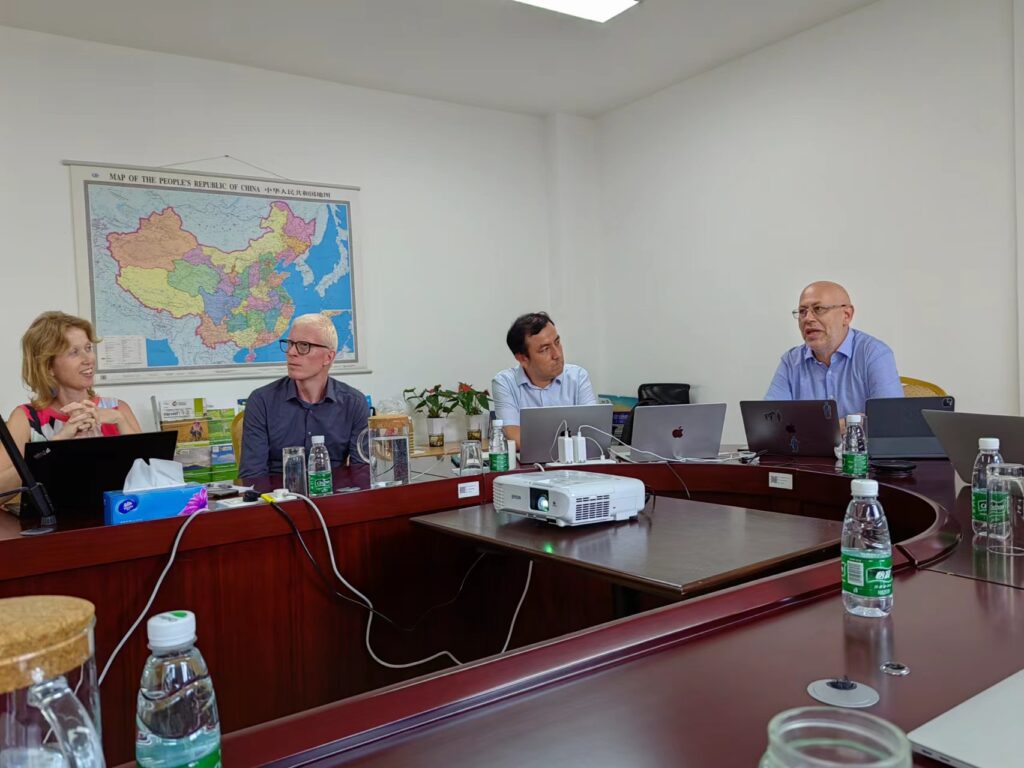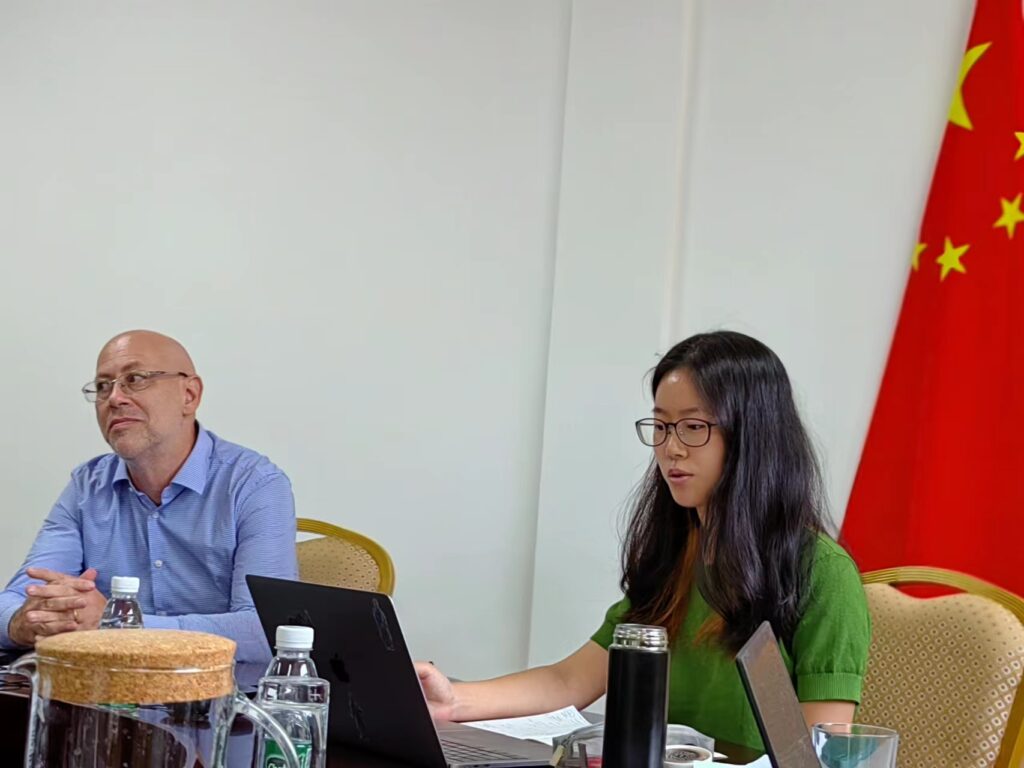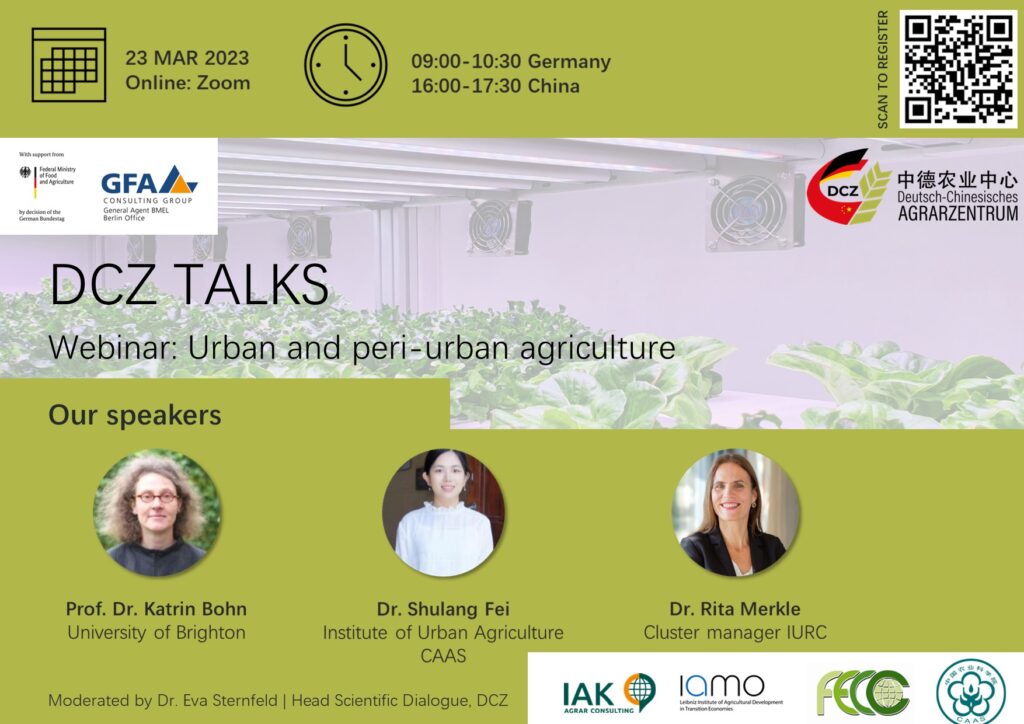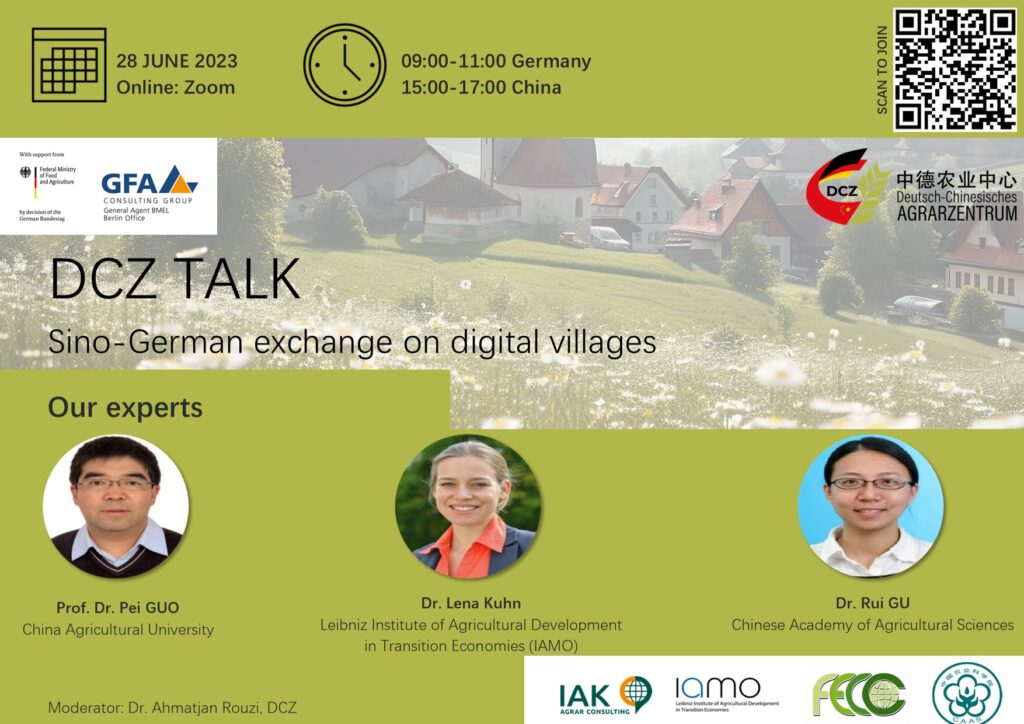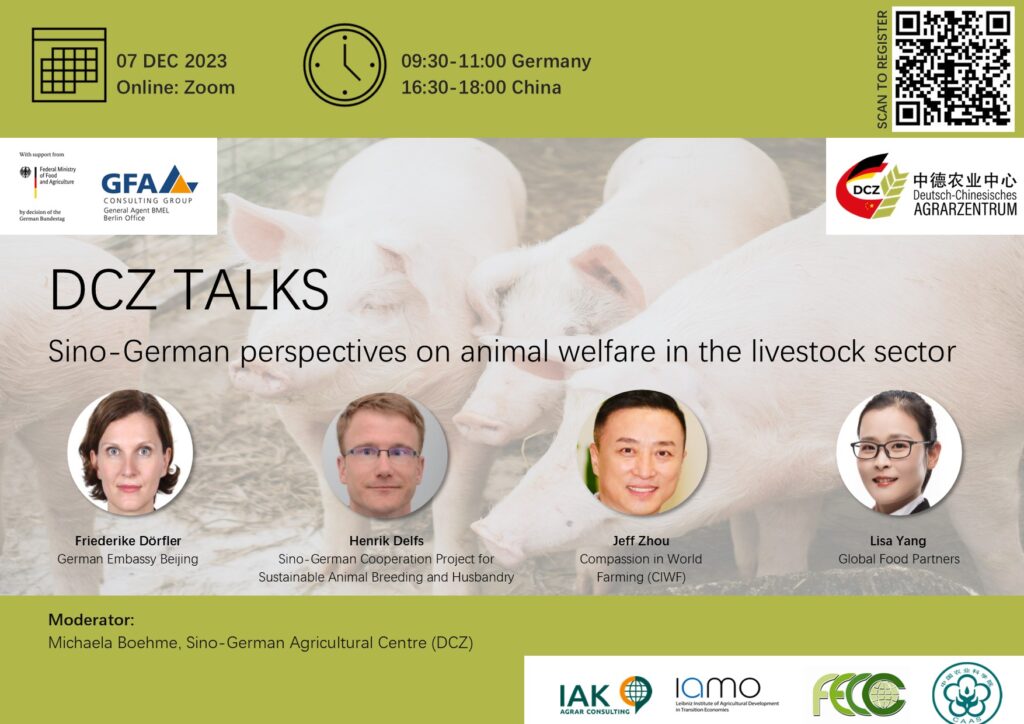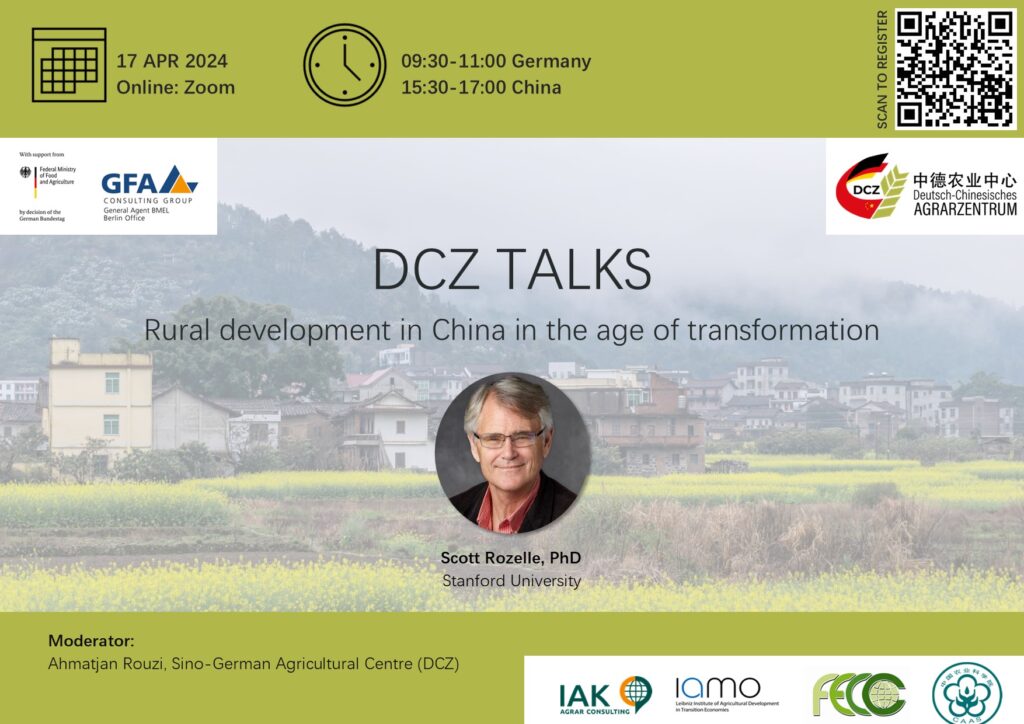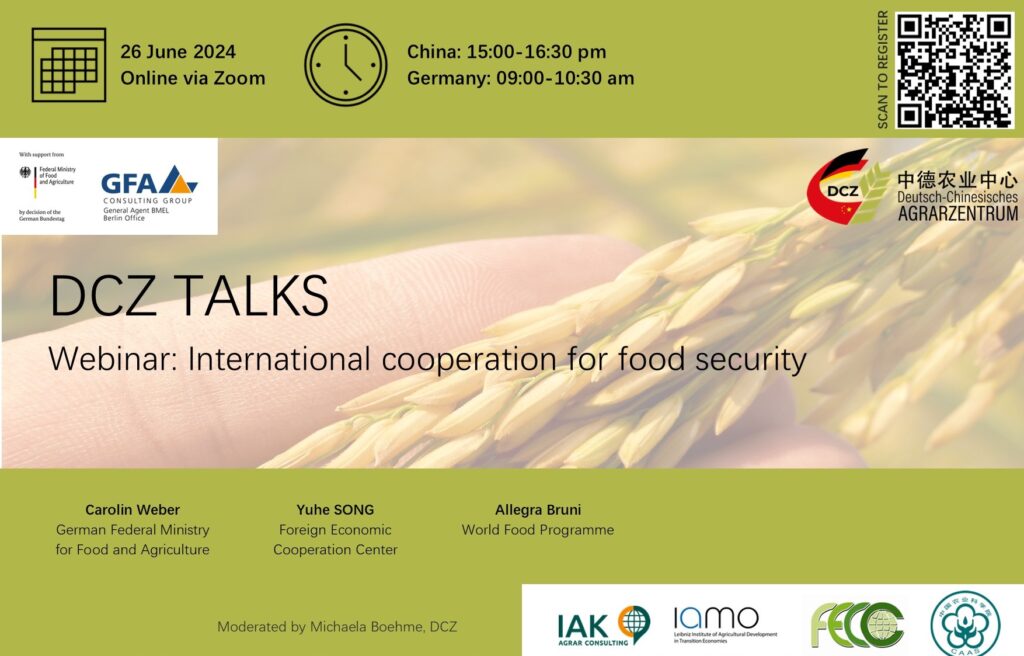Negotiated under the presidency of China, the Kunming-Montreal Global Biodiversity Framework pledges to halt and reverse global biodiversity loss by protecting 30% of land and of oceans by 2030. While China is committed to biodiversity conservation, it is equally concerned about maintaining high levels of domestic food production. Balancing biodiversity and food production goals has thus become a critical issue – in China and worldwide.
In the third edition of the DCZ TALKS webinar series, on 4 September, German and Chinese experts from academia and civil society organizations discussed the relationship between biodiversity conservation and agricultural production. The webinar was jointly organized by the Sino-German Agricultural Centre and the Journal Integrative Conservation, published by Xishuangbanna Tropical Botanical Garden (XTBG) in collaboration with academic publishing house Wiley. Over 1,000 viewers joined the event online.
In his introduction to the webinar, moderator Harald Schneider from Xishuangbanna Tropical Botanical Garden (XTBG) of the Chinese Academy of Sciences (CAS) highlighted that agricultural expansion continues to be the main driver of biodiversity loss. Agriculture, Professor Schneider reminded the audience, is identified as key threat to more than 85% of species currently at risk of extinction. At the same time, declining biodiversity adversely affects agricultural production, ultimately putting food security at risk. Importantly, balancing biodiversity conservation with agricultural production must not necessarily lead to trade-offs but can also create win-win opportunities – an issue that the subsequent speakers explored in more detail in their presentations.
Martin Welp from the Eberswalde University for Sustainable Development kicked off the panel by presenting a social-ecological systems perspective on biodiversity conservation and agriculture. Having outlined the existing challenges to agricultural production, including the reduction of arable land, land degradation, and biodiversity loss, Professor Welp identified several leverage points such as biosphere reserves, agroforestry systems, urban ecosystems, and reductions in meat consumption that can help balance biodiversity and food security goals.
As a professor of law at Wuhan University, Tianbao QIN provided a legal perspective on the topic. Giving some insights into the Chinese legal system, professor Qin noted how food, biodiversity, and climate are currently treated as separate legal areas, despite their interdependence and mutual influence. He advocated for the interrelationship between these areas to be taken into account when drafting future legislation as well as including more scientific experts into the law-making process. Prof. Qin highlighted China’s agricultural law for its inclusion of some aspects concerning biodiversity conservation, but pointed out that more needs to be done for the legal system to reflect the interconnectedness of biodiversity conservation and food security.
How to increase biodiversity without compromising agricultural yields was the question posed by Teja Tscharntke from Göttingen University. In his presentation, he highlighted the need for more landscape heterogeneity, including semi-natural habitats, higher crop diversity, and smaller fields with longer edges. Agroforestry systems also help to halt biodiversity loss. At the same time, they improve biological pest control and crop pollination, thereby ensuring that agricultural yields remain stable or even increase, as professor Tscharntke’s research from tropical Africa showed. Rather than organic labels, which do not rule out monocultures and intensified production, certification systems for biodiversity-friendly crop production should be developed, he emphasized.
Drawing on several case studies of organic smallholder farmers in China, Ze’en WANG from Chinese NGO Foodthink showed how farmers benefit from incorporating biodiversity-friendly measures into their farming practices. Higher incomes, improved climate resilience, and social recognition can provide strong incentives for small farmers to conserve biodiversity, she noted, but more supportive policy, research, and an improved market environment will be necessary to mobilize more Chinese farmers, the activist and researcher argued.
The presentations were followed by a round of questions from the moderator and the audience. Transforming agricultural production systems will be crucial if we are to halt biodiversity loss, the debate showed. The webinar also made clear that biodiversity conservation does not need to come at the cost of agricultural yields. Win-win-win opportunities for farmers, food, and the environment are possible, but more policy support and changes in market environments and consumption practices will be necessary to affect wider change.
Recording
Watch a recording of the webinar on our YouTube channel:
Presentations
The presentations of our experts are available for download here:





